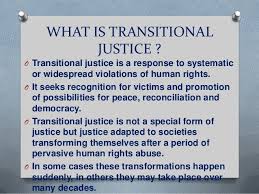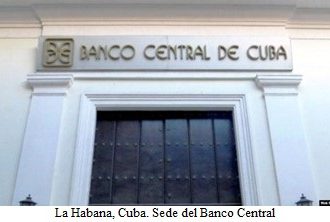CUBA AND GLOBAL COMMUNISM BY JULIO SHILING Via-victimsofcommunism.org JUNE 23, 2016 AFRICA, LATIN AMERICA, THE MIDDLE EAST….SEE HOW #COMMUNIST #CUBA HAS INFLUENCED THEM ALL FOR THE WORSETHE CASTRO REGIME WANTS THE WORLD TO FORGET ITS CRIMES, YET THERE ARE SO MANY TO REMEMBER #CUBA #HUMANRIGHTSTHE COLD WAR MAY BE OVER BUT #CUBA CONTINUES THE COMMUNIST LEGACY
CUBA AND GLOBAL COMMUNISM
I have the awesome task in limited time to talk about a free and democratic Cuba and its requisites. There are two elements that are vital for a democratization process (of course, after liberation). The first is dealing with the past, and the second is building democratic institutions for true regime change.
1989 was a very big year. In November, the Berlin Wall fell and with it the emblematic fall of Soviet communism. I didn’t say communism, I said Soviet communism. However, upon empirical scrutiny, 5 months later, on the biggest public square in the world, Tiananmen, 3,000 were butchered. And in that occurrence we saw Asian communism, the Chinese model. This was an innovative, but not really new, system because Lenin tried it in 1921 with his new economic policy. But the Chinese in effect perfected this system, where you had a mercantile economy with market mechanisms and a Leninist state.
This, in effect, crippled the hindsight of many people. Why? Because what had traditionally been marked as a free enterprise system (capitalism) siding with democracy, and centrally planned economies siding with communist authoritarian dictatorship, all of a sudden blurred. Unfortunately, this and the ensuing moral relativism caused enormous confusion among democrats of the world. The fascists, though, had it right all along on this. In other words, they knew that property in private hands with a state that in essence dominated it would be much more efficient. Well, the socialism with Chinese characteristics, in effect building on the pragmatic side of Marxism, has done exactly that. But what we also saw from 1989 was despotism that competes in elections. We saw refurbished Marxists change names, change identities, by ruling with the coexistence of private property and the state having the ability to determine the outcome of who wins and who loses. Some call this Putinism, in the sense that Putin’s dictatorship has in effect served as a model for this.
In 1991, there were 21 states that officially divorced themselves from communist rule. Thirteen years later, only eight were full-fledged democracies. What happened? There were high expectations in 1989. What went wrong? If we look at empirical evidence, we can point, for example, to the work of political scientist Samuel Huntington who proclaimed that there were historical waves of democratization. Waves like the ones we see at the sea. They come in and then there is a reflux, there’s an ebb that pulls it back, in essence reversing democratic achievements. These waves continued in and out through different sessions, and there were many people trying to explain why some fail and some don’t.
Others in the social sciences developed the idea of modernization theory. Seymour Martin Lipset did great work on that which in effect said that if you modernize the society, democracy has to come. The notion is that as the economy expands the economic class, the entrepreneurial class, will put pressure on the political class to go into the sea of democracy.
But the problem with that is that it completely misreads the qualitative difference in dictatorships. From what is classically known as an authoritarian dictatorship and a totalitarian dictatorship. They are worlds apart. In regimes of total domination, civil society does not exist. The theory of modernization is a moot point because there is no civil society, so who is going to put pressure on the political class if there is no entrepreneurial class that is not associated with the political power?
And when we rightly look at the successful cases of democratization we see Taiwan, we see South Korea, we see Greece, we see Brazil. All of these were authoritarian dictatorships, and then when we see the same model applied to totalitarian regimes, we see China, we see Vietnam, we see Laos. We see a dictatorship that is stronger than before, and its society acquiescing to a great degree because undoubtedly there is material betterment. It is the choice between living in dire misery and not being able to express yourself or living better and not being able to express yourself. It’s an obvious choice.
In the case of Cuba, what should be the requisites? Definitely the economic order is of secondary importance. Primacy lies in the political and ethical system. And this has been, to a great degree, the problem in regimes such as the Chinese, and the Vietnamese, and the Cubans, and what we have in Russia and what we see in many parts of the world. The economic and the commercial interests form a collusion with the political power that can offer a certain stability, and democratic ethics go out the window. And this is extremely, extremely dangerous.
So for Cuba the focus should be, as is the case for any country that wants a transition to democracy, on the political and the ethical. That is why this détente with the Castro regime is utterly meaningless if the purpose is democracy. Cuba will be free, however, but it will be in spite of the intentions of the Obama administration. There needs to be a systemic demolition; to be precise, de-communization. There need to be laws that protect the nation of Cuba from parties and movements that are anti-system. This has worked fine in Europe. The Europeans have not been shy to put laws on the books that will keep Nazism out of the reach of power, and this makes perfect sense. As John Adams said, “Democracy is not a suicide pact.” There is no reason that anti-system movements and parties should partake in the game of democracy. It is absolutely pointless and dangerous because democracy has to be defended.
To be even more precise, in the Cuban context there needs to be transitional justice. If there is no transitional justice, there can be no democratization. We have the evidence in Central and Eastern Europe that will validate this. Transitional justice is not wild vengeance. It is designed to avoid impunity because if you know that you can commit a crime and not be held accountable for it, it will be repeated down the road. So to avoid this, impunity cannot be tolerated as it was not tolerated in Europe after the collapse of fascism. Transition justice requires the identification of the crime, punishment for the criminals, and reparations for the victims. As part of the comprehensive de-communization that Cuba would need, its institutions need to be put away.
Hannah Arendt explained very lucidly that the success of a totalitarian regime is in its ability to organize political power in society. The system is maintained by a host of institutions, mass organizations, and labor organizations. An array of arms of the dictatorial state that try to mimic a civil society but, in effect, are just instruments of the political power. This needs to be dismantled.
The regime has enormous businesses outside the territory of Cuba which have siphoned money away from the Cuban people. This needs to be investigated; these assets need to be found. This cannot be understated because, again, impunity cannot be tolerated for all these companies. Just recently the Panama Papers continue to reveal the extent that a criminal regime, like in Cuba, goes to not just to survive but to profit because the notion of equality is completely hypocritical, as we all know and as the higher leadership of the Cuban regime demonstrates.
There needs to be the establishment of an indemnification fund because the victims have to be indemnified. Sirley has to be indemnified and so many others whose property was stolen. Now I want to be clear, no one should be taken out of their house if they are currently there. However, I cannot sanction what is in effect the biggest robbery of American property in the world. And not just because it is American property but because it’s wrong. So to the extent that this indemnification fund can afford it, this must be done because, again, we cannot sanction theft.
There are certain particularities in the ugliness of Cuban communism that so often miss the radar of many of the brightest that are on the side of liberty. Cuba’s nature is all-encompassing and has played an enormous role throughout its history in keeping communism well and alive. The notion of the New Left was essentially fathered by Cuba, where you had the Soviet Union looking at the proletariat—the working man—as the agent of change. In China, they had the peasant as the agent of change. The Cuban revolution said no, anyone can be the agent as long as they share certain sentiments. It opened the door to agents of change that attracted an enormous amount of people into this movement. Communist Cuba has been the base for the class war struggle that Latina America has been and continues to be.
Communist Cuba has been the bridge with radical Islam. This marriage of convenience you see between atheist communism and radical Islam. It was Cuba that opened the door to joint meetings with Ayatollah Khomeini while he was still in Paris. In the decolonization effort in Africa, Cuba managed to penetrate all of these independence movements and attract them towards the communist sphere.
When Soviet communism collapsed, Cuba’s response was the Sãu Paulo Forum, which brought together the movements of the Left and changed strategy by adopting Italian Marxist Antonio Gramsci’s superior system; it must be said, Gramsci’s biggest disagreement with orthodox Marxists was that economics is not primacy, culture is. He wanted to focus on impacting culture and penetrating the democratic institutions, and Marxist will get to power that way. This is what the Sãu Paulo Forum was all about. It invigorated communist subversion with different methodology. The so-called socialism of the 19th century is in effect that in motion. You cannot speak today about Venezuela, about Nicaragua, about Ecuador, about Bolivia, about Brazil without understanding the part that communist Cuba plays. Venezuela is a Cuban colony. It is not just important for the people of Cuba that Cuba take the correct road and implement this de-communization. It is important that all of this information in a free Cuba not just be made public, but the criminal activity of all those accomplices outside of Cuba’s borders. There are victims of Cuba’s communism all over the globe. It’s no secret that the American POWs that were tortured and killed by Cubans were in such a horrific state that they could not be returned when the Paris Peace Accords took place.
In closing, I cannot understate the importance that if we want to truly conclude the global recession and promote democratic recovery, Cuban communism must be completely dismantled and overhauled and transitioned to democracy. It is not just an island 90 miles from here that has a disagreement with the US government. It truly is a focus of evil that impacts the world. And the Victims of Communism Memorial Foundation is an important organization that I think has a great role in this because amnesia is what the defenders and apologists for these regimes want to promote. I commend the work that you do, not just looking at the systems that remain but looking at the subversion waiting to occur if this is not stopped with time. Thank you so much and God bless.




















Leave a Comment
Your email address will not be published. Required fields are marked with *